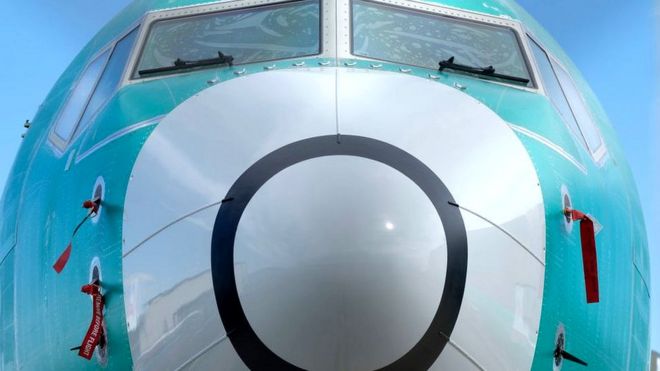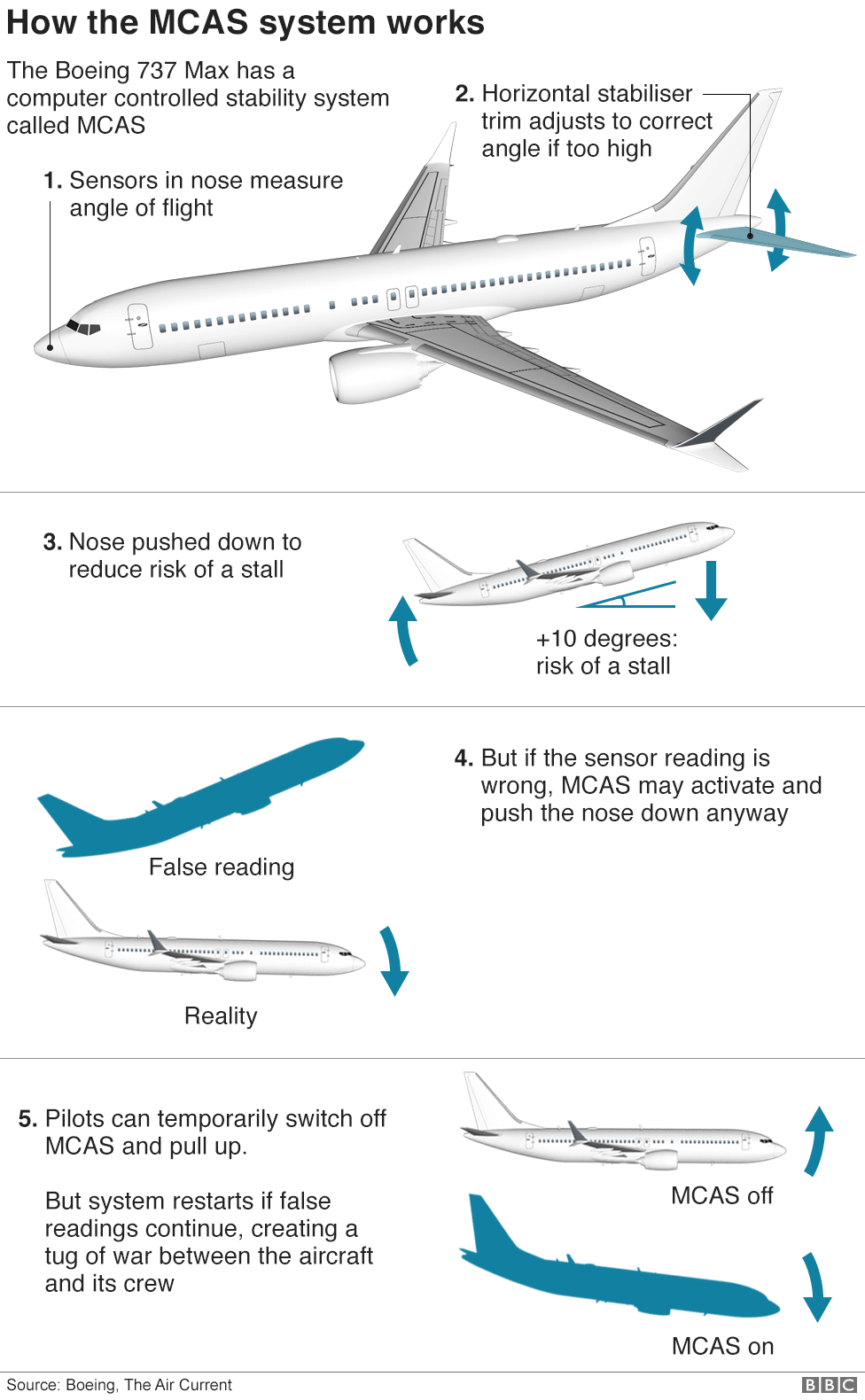
European Union Aviation Safety Agency (EASA) executive director Patrick Ky signaled that the Boeing 737 Max grounding and the privileged relationship Boeing allegedly enjoyed with the FAA during the certification of the model could trigger a "very strong change" in the hierarchy of the relationship between the certification authorities, affirming a concern of a "de-alignment" of the FAA and EASA, expressed on several occasions by Airbus CEO Guillaume Faury. Speaking during an exchange of views with the European Parliament's transport committee on Tuesday, Ky said that the FAA finds itself in a "very difficult situation."
"It is very likely that international authorities will want a second opinion, or a further opinion [once the U.S. FAA clears the Max to fly]," he noted. "It was not like this a year ago."
Ky said EASA did not audit the FAA and how it certified the Max and the problematic maneuvering characteristics augmentation system (MCAS), which safety authorities consider a major cause of the Lion Air and Ethiopian Airlines Max 8 crashes. However, the Cologne-based body is part of the international panel of safety technicians scrutinizing how the FAA allowed the airframer to oversee parts of its own certification. "What is certain is that the authorities have a critical eye on it," Ky said, confirming an observation by an MEP that Boeing "auto-certified" the MCAS.
"Yes, there was a problem in this notion of delegation of the MCAS assessment [to Boeing]," he continued, adding that the conclusion will appear in the Joint Authorities Technical Review's report scheduled for publication next week. "I have a lot of respect for my counterparts in the FAA; they have strong ethics. But what is needed is a change of their methodology," explained Ky.
"[A similar situation] would not happen in our system. We have a very structured way of delegating and an agreed methodology," Ky insisted, though he admitted that with a staff of 800 his agency does not have enough personnel to dissect each software analysis OEM's like Airbus, Safran, or Rolls-Royce produce. "That is simply impossible," he stated. "But everything that is safety-critical has to be seen and validated by us."
EASA banned the Max from flying to and in European airspace on March 12. It set four conditions before the Max can return to service in the continent, including the certification by EASA itself-without delegating to the FAA-for all design changes proposed by Boeing. In addition, in a demand Ky called "not very popular with our American colleagues," EASA has asked for a "broader review of the design of safety-critical systems" of the Max-domains that the EU-U.S. bilateral safety agreement delegated to the FAA. EASA also wants a "complete understanding" of the two accidents from both a technical and operational point of view and for adequate training of flight crew.
EASA, in theory, could set its own flight crew requirements for Max operations, Ky told MEPs. "I can guarantee you that the training requirements for the return to service of the Max will be defined by us and us only," he stated. However, he also said it would "not make sense" to have different training requirements for the Max between the EU and the U.S., or the rest of the world. EASA communicated its flight and simulator requirements-a total of 70 test points, including angle-of-attack failures, stabilizer runaway, and MCAS inoperative-already at the end of May. Simulator evaluations took place in June and July.
Ky noted an "unprecedented level of effort" put into the Max involving around 20 multi-disciplinary experts including test pilots and engineers by EASA. The agency holds two to three weekly web-based meetings with Boeing and has reviewed more than 500 documents and actions.
Ky conceded he could not issue a timeline for the return to service. "Honestly, it would be impossible for me to give a timeline," he said. "When we discussed with the FAA in April, they said May. And then everything was delayed by one month, and another month."
Samme sak sett av BBC:
Europe will not accept US verdict on 737 Max safety
 GETTY IMAGES
GETTY IMAGES
Europe's aviation safety watchdog will not accept a US verdict on whether Boeing's troubled 737 Max is safe.
Instead, the European Aviation Safety Agency (Easa) will run its own tests on the plane before approving a return to commercial flights.
The 737 Max has been grounded since March after two fatal crashes.
But Easa told the US Federal Aviation Administration (FAA) there would be "no delegation" on safety approval in a letter sent on 1 April.
Patrick Ky, Easa's chief executive, revealed a list of four conditions given to the US authorities in a presentation to the European Parliament's committee on transport and tourism on Monday.
Europe's tough stance is a blow to Boeing's hopes of a rapid return to service for the 737 Max, and is also a significant break with the established international practice of aviation regulators accepting each other's standards.
The 737 Max plane has not flown commercially since an Ethiopian Airlines aircraft crashed shortly after take-off on 10 March, killing 157.
It followed a Lion Air crash on 28 October last year which killed 189.
In both incidents, investigators have focused on the role played by a software system called MCAS (Manoeuvring Characteristics Augmentation System), which was designed to make the aircraft easier to fly.
Probes have shown the software - and the failure of sensors - contributed to pilots not being able to control the aircraft.
Mr Ky's presentation showed a refusal to accept delegation was the first of the four conditions that had to be met before flights in Europe could resume.

The other three were:
- an "additional and broader independent design review" by Easa
- that the two fatal crashes were "deemed sufficiently understood"
- and that flight crews had been adequately trained in any changes to the plane.
Easa's work on the 737 Max had entailed "an unprecedented level of effort", with 20 aviation experts and two to three online meetings a week with Boeing engineers.
There were plans for a full week of trial flights with a modified aircraft at Boeing's flight test centre in Seattle.
Boeing has been working on changes to the 737 Max's flight control systems to avoid the MCAS problem. As well as changes to the plane, it has proposed changes to the ways pilots are trained.
Reports in the US have suggested that Boeing had hoped for FAA safety clearance next month, with airlines free to fly the aircraft later in the year.
FAA approval would allow US airlines to fly the aircraft, but European operators - including Norwegian Air - would need Easa clearance before returning it to commercial service.



Ingen kommentarer:
Legg inn en kommentar
Merk: Bare medlemmer av denne bloggen kan legge inn en kommentar.